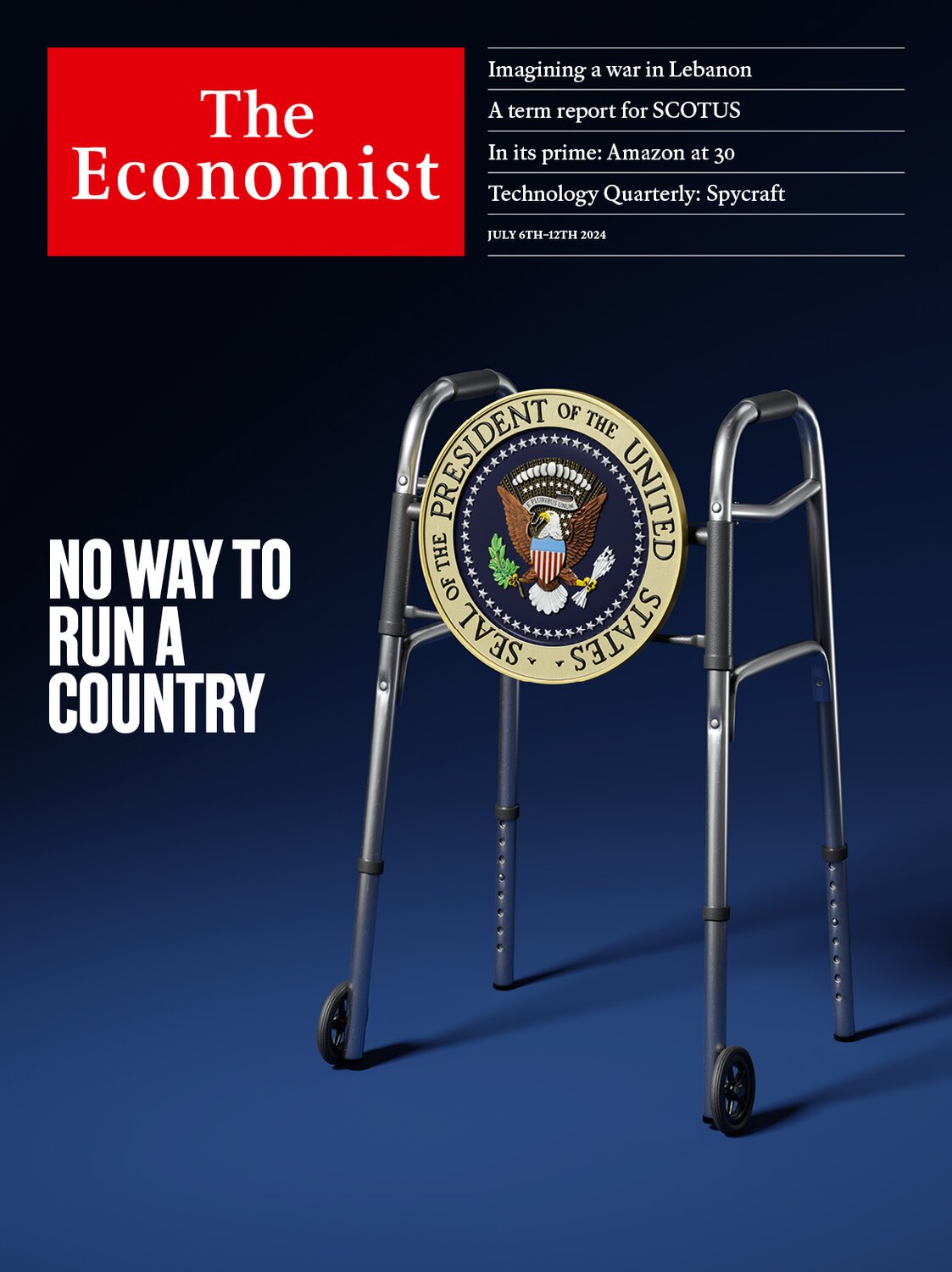Cover of The Economist magazine dated July 6th-12th, 2024, featuring an image of a walker with the Presidential Seal of the United States and the headline 'No Way to Run a Country’.
As a disability advocate, I am often reminded of the pervasive ableism that infiltrates many aspects of our society. The recent cover of The Economist, depicting a walker with the presidential seal and the caption "No way to run a country," is a stark example of this issue. Regardless of political views or the current debates around President Biden's fitness, framing his capability to govern based on a disability is not only cruel but highlights a deep-seated ableism that must be addressed.
This kind of representation perpetuates harmful stereotypes, suggesting that those who use mobility aids are less capable. Such images can have far-reaching consequences, reinforcing negative perceptions and fostering environments where people with disabilities feel pressured to hide their conditions. The Economist should be ashamed of themselves for this front-page cover and for continuing to push a harmful narrative that deems individuals with disabilities as less competent.
The Economist's cover is not just an isolated incident; it reflects a broader issue within media representation. This portrayal underscores the editorial team's lack of understanding and empathy toward disability. It's a reminder of the significant work needed to educate and shift societal perspectives. Media outlets have a powerful influence on public opinion, and with that power comes the responsibility to portray all individuals fairly and accurately.
This is not the first time we've seen such blatant ableism in politics. Senator John Fetterman faced criticism for using assistive technology to perform his duties, with many questioning his ability to serve. While the office of the President is indeed a different challenge, ableism should have no place in our political discussions. As advocates, we must highlight these issues and push for a more inclusive narrative recognizing the capabilities of all individuals.
Ableist portrayals like The Economist's cover can discourage employees from disclosing their disabilities, fearing judgment and discrimination. This reluctance prevents many from accessing necessary accommodations that could enhance their productivity and well-being. It's crucial that we create workplaces where disability disclosure is met with support and understanding, not prejudice.
To combat these harmful narratives, media organizations must take actionable steps to improve their representation of individuals with disabilities. This includes hiring more people with disabilities in visible roles, consulting with disability advocates when creating content, and committing to ongoing education on disability issues. By doing so, they can help dismantle ableist stereotypes and promote a more inclusive society.
Let's use this moment to spark a conversation about ableism in the media and beyond.


